The University of Maine at Farmington values the partnerships held with various community members and organizations. These partnerships allow UMF students to get involved in the community while building on their field experience and engaging in a hands-on learning environment.
The Franklin County Children’s Task Force provides extensive employment, practicum, volunteer, and internship opportunities for students, including their 21st Century Kids of F.R.A.N.K.L.I.N After School 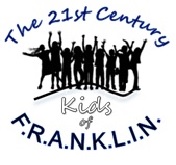 Program. Thomas Desjardins, Program Coordinator, was able to give an insight into the program, the opportunities it provides for UMF students, and the value of this partnership.
Program. Thomas Desjardins, Program Coordinator, was able to give an insight into the program, the opportunities it provides for UMF students, and the value of this partnership.
“The Franklin County Children’s Task Force generally assists families in need in Franklin county,” Mr. Desjardins explains. “Specifically, my program is the 21st Century After School Program and the mission of this program is to provide quality after school programming with intensive academic supports at no cost to the students in both Farmington and Wilton and the Mt. Blue school district. We provide a safe space for parents to leave their kids when they are at work. We know how much child care costs, but we want to do more. It is more than just a safe space. We want to promote positive interactions and academic achievement in these children. It is all about caring about the people in the community.”
Out of the 31 staff members, 28 of them are UMF students. Kathy Kemp, a UMF Rehabilitation Services professor, is also on the Task Force Board of Directors. Partnering with the University has given the Task Force and the 21st Century Program numerous cooperative and valuable contacts within the community.
UMF students that are employed through the 21st Century Program have the opportunity to take what they have learned in the classroom and apply it to this program, as they are involved in lesson planning and implementing those lessons at Mallet or Academy Hill Elementary School. UMF students serve in the role of enrichment facilitator, academic tutor, homework helper, and as the site coordinator. They plan various STEM (science, technology, engineering, and math) activities, provide academic supports, kinesthetic activities, visual and performing arts, and health prevention education.”
As a previous school principal, Mr. Desjardins enjoys coaching and supporting new teachers and helping others build on their own skills. “[UMF students] learn how to interact, manage, teach, plan- all aspects of being a school teacher. It’s not babysitting, it’s more like being paid for student teaching or practicum. They participate in monthly staff meetings and professional development, they bring in professionals from various fields, and engage in professional discussions around teaching and learning.” Mr. Desjardins values the “organic connection” that students have with him and his program. “Students look for opportunities to further their craft outside of the classroom. It’s a win win situation, they get the experience and I get to coach them. And they get a paycheck!” Mr. Desjardins said with a chuckle.
When looking for prospective candidates, positive energy and good character are the most important qualities for a potential employee to have. “My realization is that in your early 20’s as a student you have a lot of capacity to be built, but you do not have a lot of tools in the tool box,” says Mr. Desjardins. “It is incumbent upon me to expand your tool box. I run this program as if I am a principal and these employees are my teachers.”
Thomas Desjardins and the 21st Century After School Program are valuable assets to the community and the University. Mr. Desjardins cares a lot about the community, families, and his employees. His experience as a school principal gives him the skills and knowledge to work with future educators and help them build on their own skills to reach their full potential. He is a tremendous leader, educator, coordinator, and partner. The University of Maine at Farmington and the Franklin county are lucky to have him as a partner and a supporter.
 The Franklin County Children’s Task Force and the 21st Century Kids of F.R.A.N.K.L.I.N Program are always recruiting UMF students for practicum, student teaching, volunteer, and employment opportunities. For more information about this program and how to get involved, please contact Thomas Desjardins at tdesjardins@fcctf.org or (207) 778-6960, or visit the Franklin County Children’s Task Force website.
The Franklin County Children’s Task Force and the 21st Century Kids of F.R.A.N.K.L.I.N Program are always recruiting UMF students for practicum, student teaching, volunteer, and employment opportunities. For more information about this program and how to get involved, please contact Thomas Desjardins at tdesjardins@fcctf.org or (207) 778-6960, or visit the Franklin County Children’s Task Force website.
On behalf of the UMF community, we would like to thank Mr. Desjardins and his program for all that they do for University students and the community. “Franklin County Children’s Task Force, strengthening families for over 30 years.”
 and consecutive academic years in certain elementary and secondary schools and educational service agencies that serve low-income families, and meet other qualifications, you may be eligible for forgiveness of up to a combined total of $17,500 on your
and consecutive academic years in certain elementary and secondary schools and educational service agencies that serve low-income families, and meet other qualifications, you may be eligible for forgiveness of up to a combined total of $17,500 on your  UMF Scholarships: UMF offers over one hundred academic scholarships for students, and many of them are dedicated to students in the education field. Many scholarships have very few requirements to be eligible, and they are designed to help all students that are deserving. Below is list of just some of the scholarships offered to education majors at UMF. For a complete list of UMF scholarships and recipient requirements, visit the
UMF Scholarships: UMF offers over one hundred academic scholarships for students, and many of them are dedicated to students in the education field. Many scholarships have very few requirements to be eligible, and they are designed to help all students that are deserving. Below is list of just some of the scholarships offered to education majors at UMF. For a complete list of UMF scholarships and recipient requirements, visit the 

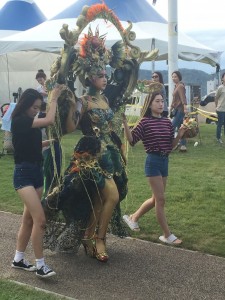

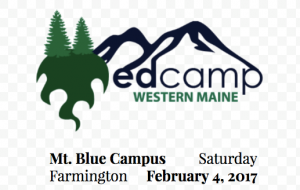

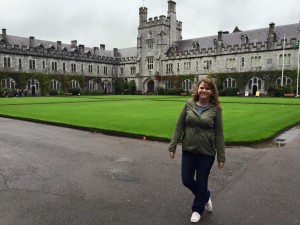
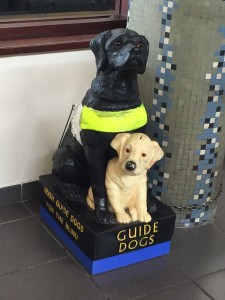 e Deaf, both Americans and Irish went to the same country to learn it, which was France. I found that really neat! That being said, there are a few differences I’ve also found. First, there seems to be a lot more non profit organizations supporting people with disabilities in Ireland. For example, one of my first days going into the city, there were some people asking for donations for
e Deaf, both Americans and Irish went to the same country to learn it, which was France. I found that really neat! That being said, there are a few differences I’ve also found. First, there seems to be a lot more non profit organizations supporting people with disabilities in Ireland. For example, one of my first days going into the city, there were some people asking for donations for